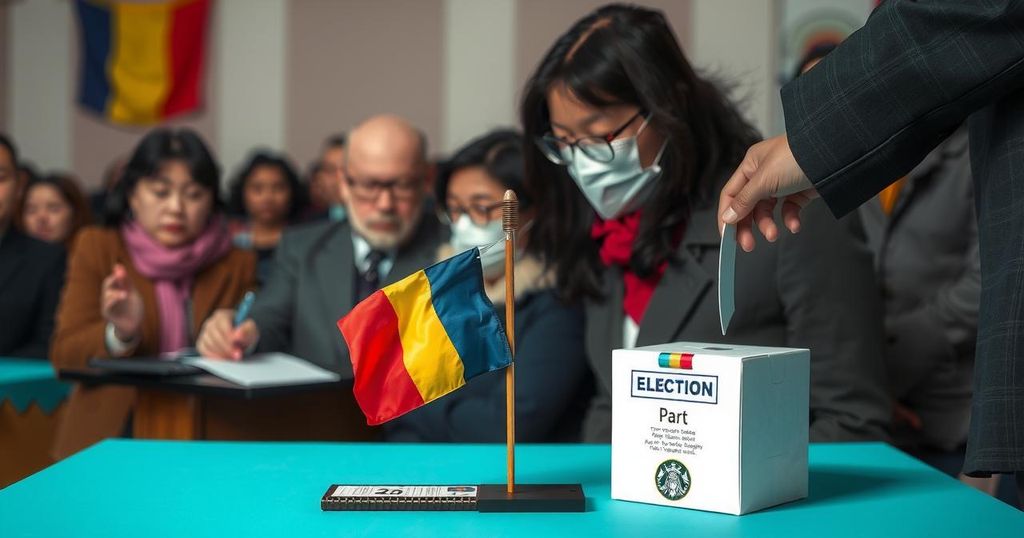Romania’s Election Manipulation: A Cautionary Tale for Democracies

The Romanian presidential election faced severe manipulation, resulting in its cancellation by the Constitutional Court. Calin Georgescu, a pro-Russian candidate, gained popularity through TikTok, raising significant questions about election integrity. His unexpected success, driven by artificial social media support, reflects broader challenges facing democracies in the digital age.
The Romanian presidential election held on November 24 was abruptly canceled on December 6 by the Constitutional Court of Bucharest, highlighting severe concerns about election integrity within the European Union. Candidate Calin Georgescu, a conspiracy theorist supported by pro-Russian factions, initially surged to prominence via a calculated manipulation of the TikTok platform, promising to eradicate political parties. Despite his lack of a transparent background and dubious financing, Georgescu appeared set to defeat a weak pro-European adversary, yet the election was annulled due to its flawed processes.
The rise of Georgescu is emblematic of a broader trend in the Western world, where socio-economic challenges such as high inflation and public war fatigue have fostered a favorable climate for nationalist ideologies. However, Georgescu’s ascent was primarily facilitated by sophisticated social media interference, marking a new era in electoral manipulation. Intelligence reports suggest that state actors leveraged TikTok’s algorithms to inundate the platform, raising doubts about the authenticity of the electoral process.
As the elections drew closer, deceptive accounts and paid influencers significantly bolstered Georgescu’s visibility, overshadowing traditional campaigning methods. The shock of his near 23% vote share in the first round prompted media and intelligence scrutiny of a candidate who, until then, had evaded significant attention, underscoring the urgency of safeguarding democratic processes in the face of new technological threats.
The article addresses the recent Romanian presidential election, a critical case study of election manipulation through social media. It narrates how candidate Calin Georgescu leveraged platforms like TikTok to amplify his appeal amid rising nationalism and anti-establishment sentiments, which have been exacerbated by economic challenges and geopolitical tensions. The election’s cancellation by the Constitutional Court propels discussions on the integrity of democratic elections in light of foreign influence and technological manipulation.
In conclusion, the Romanian presidential election underscored the susceptibility of democratic processes to manipulation through modern technology. The rise of candidates like Calin Georgescu illustrates the potential for social media to distort public perception and electoral outcomes. As democracies worldwide face similar threats, it is imperative to enhance transparency and safeguard electoral integrity to prevent the erosion of foundational democratic principles.
Original Source: www.lemonde.fr








